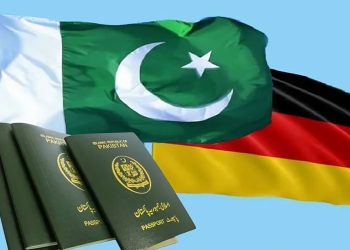Robert Mugabe ruled Zimbabwe, one of the least developed countries in Africa, for almost four decades from 1987 to 2017. For almost the same period, another African country, Sudan, was ruled by Omar al-Bashar. Since 1990, Yemen has been ruled by only two people – Ali Abdullah Saleh and Mansoor Hadi. The same is the case in more than half of African countries where the presidential system has been embedded for decades. These men ruled with an iron fist as dictators in their countries with impunity.
Japan is currently the world’s third-largest economy worth $4.872 trillion. The island nation has had 20 prime ministers in the last four decades. This reminds me of Jawaharlal Nehru’s saying regarding Pakistan, “I do not change as many dhotis in a year as Pakistan changes prime ministers”. The United Kingdom has had a parliamentary system for centuries. Since 1980, it has had about nine prime ministers but the country’s economy has remained among the top five in the world. The case is the case in almost all of Europe
In the modern world, there are two most popular forms of democratic systems – presidential and parliamentary. Almost 90 percent of the world’s governments operate under these two systems. If the presidential system is so effective then why Zimbabwe, Yemen Sudan, Kenya, Gambia, and Mexico are considered failed states and the fate of people is not changing, and if the parliamentary system is no suitable then why Japan, UK, and the rest of Europe are among the most developed and prosperous countries.
We all know where the voices calling for a presidential system in Pakistan are emanating.
Russia, China, and Central Asia are under an authoritarian presidential system that some Pakistanis aspire for but tend to forget the decades of martial law under Gen Ayub and Gen Yahya, the 11-year long dictatorship of Gen Zia-ul-Haq, and the era of Gen Musharraf, when a single individual pulled all the shots. These people remind us that the United States has an economy of S19.485 trillion under its presidential system but not the border issues with Mexico, which also has a presidential system. Mexicans have struggled to cross the Rio Grande border for decades.
Why do we consider Pakistan as a laboratory for such experiments? These Einsteins should remember the Canadian parliamentary system which also borders the United States and has become one of the largest welfare states Why don’t those advocating for a presidential system say that Zimbabwe, Yemen, Sudan and almost half of Africa also have a similar system but still claim it is full of virtues and free from errors.
We all know where the voices calling for a presidential system in Pakistan are emanating. The point is that the system becomes irrelevant when the operators are not right, take unilateral decisions and forget about the rights of the people. The entire nation is nodding like a herd without understanding the consequences. They should not forget that Mugabe ruled for decades and left but Zimbabwe is still one of the poorest countries in the world. The people remain standstill in disappointments, regrets and failures. Maybe we may not learn from Australia, Japan, Britain and Canada but take a lesson from Robert Mugabe of Zimbabwe.






























